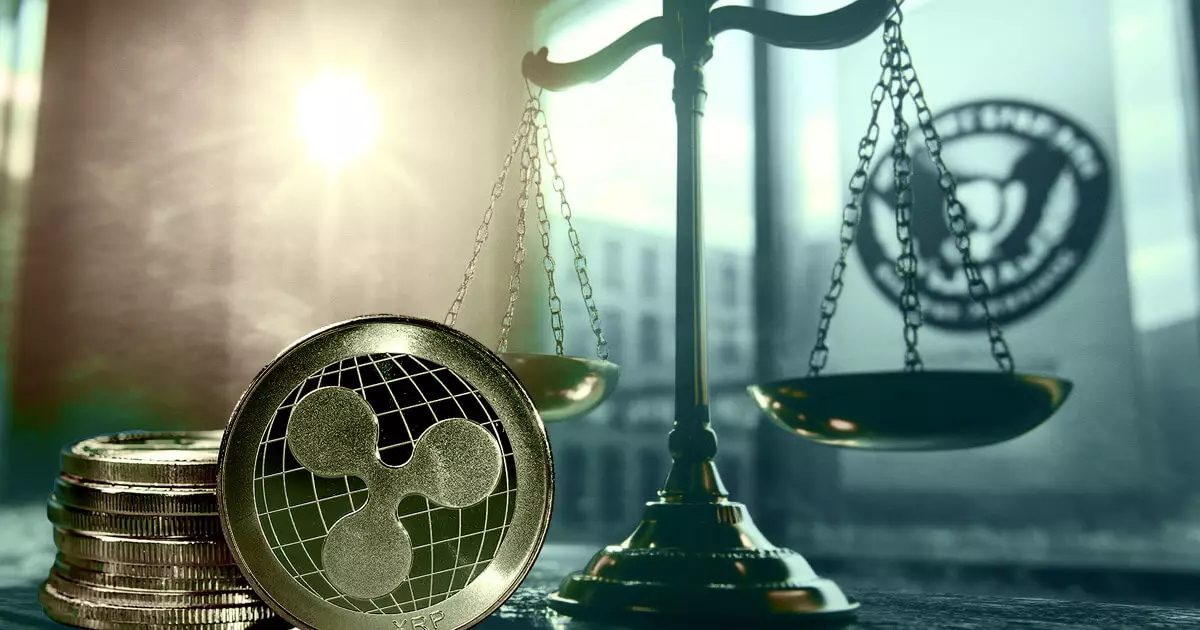The ongoing legal tussle between Ripple Labs and the U.S. Securities and Exchange Commission (SEC) has been marked by significant developments, none more crucial than the SEC’s recent filing indicating its intent to appeal parts of Judge Analisa Torres’s ruling. On October 17, the SEC submitted its Civil Appeal Pre-argument statement (commonly referred to as Form C) in the U.S. Court of Appeals for the Second Circuit. This appeal signifies the SEC’s response to a previous decision that, at least in part, favored Ripple, creating a complex landscape for the future of cryptocurrency regulations in the United States.
Overview of the Initial Ruling
Judge Torres’s ruling last year represented a watershed moment for Ripple, as it affirmed that the company’s transactions involving XRP—a digital currency—did not constitute a breach of U.S. securities laws when dealing with retail investors through digital trading exchanges. However, the decision was not entirely in Ripple’s favor; the court ruled that its sales of XRP to institutional investors did contravene existing securities regulations. This dual outcome highlights the complexities surrounding the classification of digital assets and their regulatory implications.
The core of the SEC’s appeal rests on elements that the judge had previously ruled in Ripple’s favor. Specifically, the agency is challenging Ripple’s programmatic sales on digital platforms, the distribution of XRP to its employees, and the roles of Ripple executives Brad Garlinghouse and Chris Larsen in allegedly facilitating these activities. This appeal could reshape the understanding of how digital tokens are categorized under U.S. law and further ignite debates around regulatory measures in the cryptocurrency sector.
The SEC’s filing invokes the “de novo” standard of review, signaling that it seeks a fresh examination of the legal questions at hand without giving deference to the trial court’s conclusions. Within the complexities of law, this approach can either reinforce or undermine previous legal determinations. The specific focus on Garlinghouse and Larsen raises important questions about personal liability and accountability in corporate structures, particularly in industries that are rapidly evolving and where regulatory norms have yet to catch up.
Moreover, the SEC has notably chosen not to appeal the substantial $125 million penalty against Ripple or the court’s denial of disgorgement—essentially, the relinquishment of ill-gotten gains. This decision may suggest that the agency is prioritizing the foundational legal arguments over financial penalties, underscoring its goal to establish clear regulatory boundaries surrounding digital assets.
The SEC’s move has elicited varied reactions from the cryptocurrency community, signaling heightened interest and concern regarding the implications of this legal battle. Many observers note the strategic timing of the appeal, given that it follows weeks of speculation surrounding the SEC’s next steps. Ripple’s Chief Legal Officer, Stuart Alderoty, highlighted the clarity in the previously established ruling, emphasizing that the assertion that “XRP is not a security” remains uncontested. His comments reflect a sense of cautious optimism within Ripple, even as the company prepares for a counter-appeal in the coming weeks.
This legal dispute is likely to have far-reaching implications beyond Ripple itself. The outcome may serve as a precedent for other cryptocurrency firms, influencing how digital assets are treated under U.S. securities law. Furthermore, it could impact investor confidence and regulatory clarity in an industry that thrives on innovation but often finds itself navigating a patchwork of regulations.
As the SEC and Ripple prepare for what could be a lengthy appellate process, the stakes for both parties—and the broader cryptocurrency ecosystem—are undeniably high. This ongoing legal battle represents not just a disagreement over a single company’s practices, but a pivotal moment for the entire digital currency space as it grapples with its identity and regulatory future in the United States. How this situation unfolds may determine not only the fate of Ripple and its executives but could also set significant precedents for how digital assets will be regulated moving forward. As we stand on the threshold of this potentially transformative moment in financial history, the repercussions of this case will likely echo throughout the industry for years to come.
















Leave a Reply